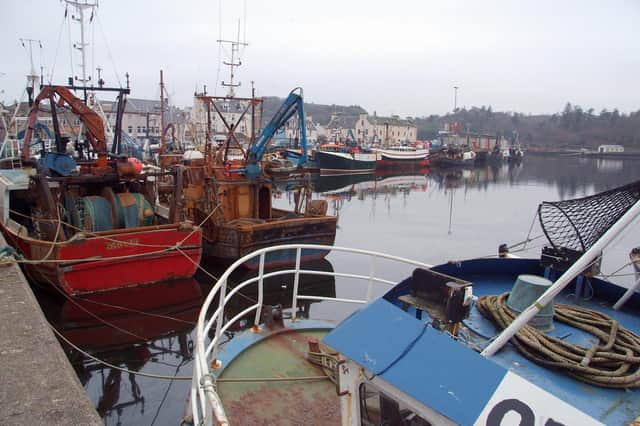Crisis point for the Isles fishing industry


This was stated by Duncan MacInnes, secretary of the Western Isles Fishermen’s Association, following the organisation’s annual general meeting which is understood to have been dominated by the issue and demands for early clarity about implementation.
Several fishermen said that they could not survive if the plans are implemented while there were serious warnings about the implications for existing processing plants, dependent on prawns and scallops, as well as for investment in new fishing vessels.
Advertisement
Hide AdAdvertisement
Hide AdThe key issues are a proposed extension of Marine Protection Areas, the enforcement of conditions within them and further restrictions on bottom contact gear such as scallop dredging and prawn trawling within inshore waters.
While the Sound of Barra, which is already designated an area for Special Protection, is the immediate focus of concerns, the terms of the SNP-Green Co-operation Agreement are so widespread and far-reaching that the whole industry is in a state of anxiety about what comes next.
Mr MacInnes warned that the viability of processing plants at Stornoway – where there has just been a £4.5 million investment in
the MacDuff Shellfish plant – Kallin and Ardveenish will be threatened if the agreement is implemented in ways that are currently suggested. The three locations account for a combined wage bill in excess of £2.5 million.
Advertisement
Hide AdAdvertisement
Hide AdHe said that around 50 per cent of the value of the Western Isle catch – mainly scallops and prawns – come from bottom contact gear which has been used in a sustainable way for decades. In the case of Sound of Barra, a successful fishery providing high value shellfish is currently operated on a seasonal basis while a full close-down would be a disaster.
The SNP-Green agreement commits to “deliver fisheries management measures for existing Marine Protected Areas (MPAs) where these are not already in place, as well as key coastal biodiversity locations outside of these sites, by March 2024 at the latest ….
“These measures will give protection for MPA features, as well as those priority marine features identified as most at risk from bottom-contacting mobile fishing gear outwith MPAs”. The agreement binds the Scottish Government to “add to the existing MPA network by designating a world-leading suite of Highly Protected Marine Areas (HPMAs) covering at least ten per cent of our seas”.
The expansion of MPAs, said Mr MacInnes, would only put greater pressure on the fishing grounds that remained open. He also said that previous closures to mobile gear, notably Broad Bay in 1984, had been “completely counter-productive – there is nothing there now but starfish”.
Advertisement
Hide AdAdvertisement
Hide AdBoth Alasdair Allan MSP and Angus Brendan MacNeil MP are understood to have attended the on-line meeting and, according to one source, were “told in no uncertain terms that this has to be sorted or else there is not going to be a fishing industry left in the Western Isles”.